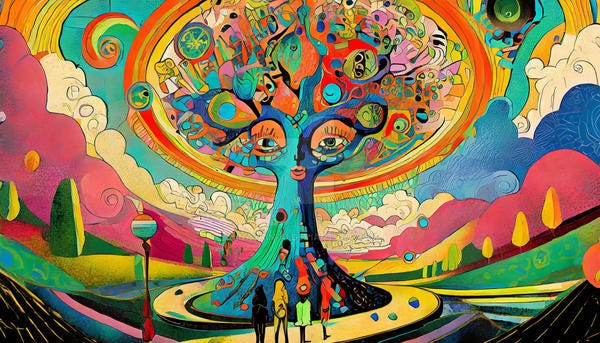Do I Need A Label?
The ADHD/ASD assessment process can be long, and arduous—do I bother?
In recent years, there's been a growing awareness and acceptance of neurodiversity—the concept that variations in brain function are natural and not inherently deficits. This shift in perspective has led many individuals to question whether they might have Attention Deficit Hyperactivity Disorder (ADHD) or Autism Spectrum Disorder (ASD). But with this increased understanding comes a new dilemma: Do I need a label?
The decision to seek a diagnosis is deeply personal and complex. It's a journey of self-discovery, with potential benefits and drawbacks to consider. This growing acceptance, and crisis within almost every public service, has also meant that accessing a diagnosis takes longer than it used to. As a parent considering whether this is right for your child, here are some of the things you might want to consider:
Understanding and Self-Acceptance: For many, a diagnosis brings clarity and validation. It can explain lifelong challenges, alleviate self-blame, and foster self-acceptance. Knowing why you think and behave differently can be incredibly empowering. Young people often grow up in environments that struggle to affirm them—knowing why they are struggling, and understanding themselves, can counteract this.
Access to Support and Resources: A formal diagnosis can unlock access to specialised therapies, educational accommodations, and support groups. These resources can equip you with strategies to manage challenges and thrive. This might also include respite groups for children with SEND. In theory, diagnosis shouldn’t unlock the path for an Educational Health Care Plan but in practice this can be quite different.
Community and Connection: Connecting with others who share similar experiences can be invaluable. Online forums, support groups, and communities offer a sense of belonging and understanding that can be profoundly comforting. A diagnosis to access support groups isn’t always necessary, but the learning a diagnosis can bring might make it easier for you to feel like a full part of a group. It might be necessary for respite care or certain type of SEND funded activities.
What about the alternative?
That being said, a diagnosis isn’t a be all and the end all. Certainly, a diagnosis shouldn’t become something you internalise to self-limit in any way. It is an explanation of certain themes, but it isn’t the whole story of your life—you or your child are complex, multi-faceted people. If you feel like most days you are able to cope, or you don’t want to explore medical management, or for any reason at all, here are your other options:
Self-Education: Learning about ADHD and ASD through books, articles, and online resources can offer valuable insights and coping strategies. It might also be enough for you to see you or your child reflected in media for you to feel better about the challenges, and for you to learn to adapt.
Therapy and Counselling: A therapist can help you explore your challenges, develop coping mechanisms, and improve your overall well-being. There are many types of therapy, such as art, talking, CBT, as well as the other functional types such as speech and language, occupational and physiotherapy. They might all have their role.
Self-Diagnosis: This one is slightly controversial but I’ll stick with it—whether or not a psychiatrist or a paediatrician can point at you and say “you have ___” or not is not actually the determinant of whether you do or not. Nothing changes from the day before the appointment to the day after. You and your child are the same—the knowledge might change you, but the diagnosis didn’t. We are all the experts in our own experience.
And in short?
The decision to seek a diagnosis is a personal one, and there's no right or wrong answer. Weighing the potential benefits and drawbacks can help you make an informed choice that aligns with your individual needs and goals. Remember, whether or not you choose to pursue a formal label, you are not alone, and there is support available to help you thrive.
Can you help me?
Absolutely! Contact me to arrange a chemistry/discovery call with me—with no charge, and free from obligation.
Please get in touch:
Final thoughts
Whether to ask for a diagnosis, explore one, and whether to share one when you get one are all deeply personal questions. Nothing is right or wrong. Our choices are our choices.
Did you like this post? Think you have a friend who might want to read it?
Make sure you don’t miss any of my other posts:




